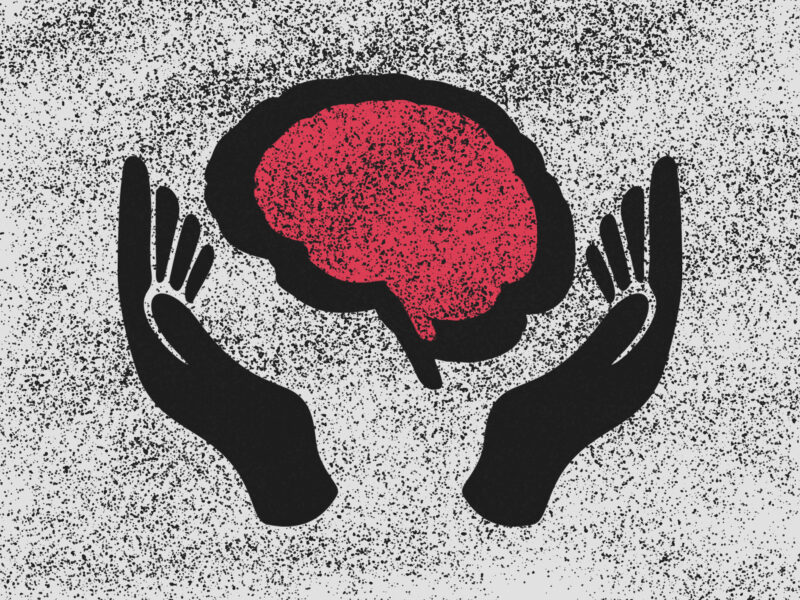Ireland’s collective mental health has been tested these last 18 months in ways unimaginable before the onset of coronavirus, but the crisis in this country has a legacy long beyond the pandemic.
So when I read recently published figures on colleges’ spending on mental health services, the last thing that I was expecting to feel was pride and satisfaction – but this is exactly what the remarkable numbers brought me, at first.
The figures describe how mental health services in third level – services that are reserved for some of the most vulnerable members of Irish society in regards to mental health issues – generally met the needs of students in a critical moment. Maynooth University having no wait time for the four per cent of students who accessed counselling services, and Dublin City University’s (DCU) ability to get wait times for over 1,500 students in need down to just five working days stand out as particularly commendable by both institutions.
The counselling service is one of the most important parts of Trinity with regard to students’ health and wellbeing – but it’s one that is consistently overlooked when measuring College’s successes and failures
The successes seen in many of these colleges caused surprise on my behalf due to their absolute contrast to the situation seen in Trinity. In juxtaposition to DCU and Maynooth, the average wait time for a follow-up appointment with the student counselling service was 40 days. This is one of College’s gravest failures with regard to students.
I believe the counselling service is one of the most important parts of Trinity with regard to students’ health and wellbeing – but it’s one that is consistently overlooked when measuring College’s successes and failures.
The disappointment and frustration that seeing Trinity’s figures against the rest of the country’s is not remotely levelled at the service itself. The people who staff the counselling service across the country are remarkable people who deserve so much credit for being there to serve the needs of individuals who often cannot afford private care.
Unfortunately, as is often the case, these vulnerable students are the people that the college is failing. Unlike cases where grades or research opportunities may go lacking, these are people whose wellbeing and health are reliant on Trinity providing timely, compassionate care. The current services are indeed compassionate, but no one who has ever sought counselling would describe a 40-day waitlist as timely.
Like many things in universities, where budgets and bottom lines seem to be more important than learning or research, a culture of reactivity rather than proactivity with regard to issues of major importance has become the norm. Colleges do not consistently monitor the affordability of student housing, they wait until it becomes untenable for students and then they react – if they even react. They don’t invest funds into human capital like lecturers and professors until their QS ranking falls.
Like many things in universities, a culture of reactivity rather than proactivity with regard to issues of major importance has become the norm
In the case of mental health, lives and futures are at risk of being lost before College reacts. Students, therefore, must demand proactivity on this issue.
For all the blows that young people have been dealt as a result of the pandemic, a new challenge is close on the horizon which puts the mental health of students at even higher risk: the return to normal life.
The end of the pandemic may be within sight, but the legacy of these strange times on people’s mental health will extend far, far beyond the virus itself. The return to socialising, on-campus learning and a myriad of other things poses a wholly unique challenge for the mental health of people, especially those who are about to enter a transitory phase of their lives and are entering into an entirely new world without the normal preparation.
Students in Trinity need to demand better treatment than having to wait over a month after an initial consultation
Colleges should be pouring more money into their mental health services to keep up with the avalanche of appointments that are coming in the next 18 months. Many of these students simply cannot wait 40 days to be seen.
Students need to demand that all colleges aspire to and work towards having short, or no, waiting lists. Students in Trinity need to demand better treatment than having to wait over a month after an initial consultation. Preserving the mental and physical health of students needs to be a priority for the university and, as the figures show, this is far from being the case.
Trinity spends a lot of time promising to be a leader in important issues like gender equality and climate change – which are very much worthy causes, of course – but where is its interest in promoting mental health? Even in a historic campaign which saw Provost Linda Doyle elected the first female head of the university, little air time was given to the topic.
Students may not have much of a say in the provost election, but Doyle has been elected to serve all members of the Trinity community. If she wants to make Trinity a place where students can thrive, she must be proactive in improving mental health services. She must look to emulate the rapid turnaround from contact to appointment that other universities have.







